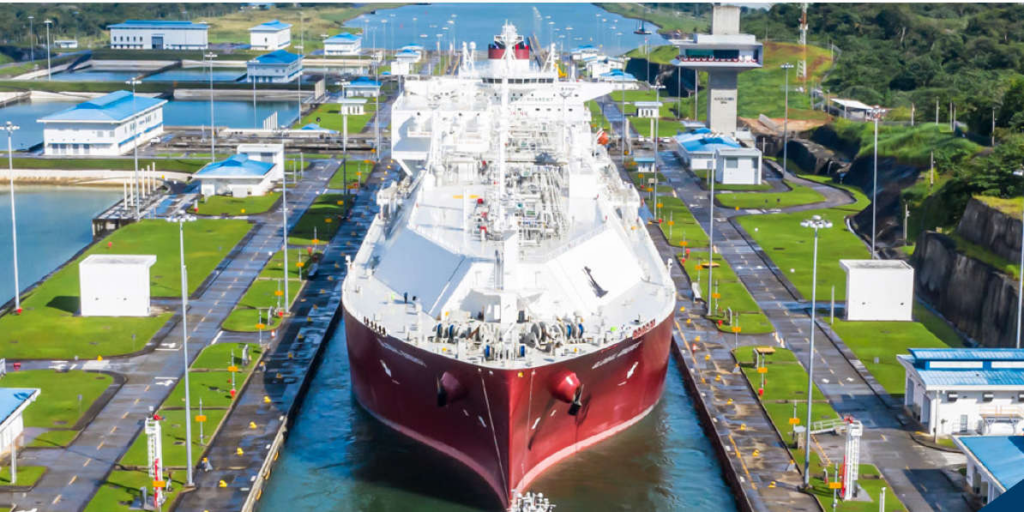In a stunning breach of long-standing agreements, China has seized operational control of key ports flanking the Panama Canal. This move has ignited a firestorm of controversy and prompted urgent calls for the United States to reclaim this vital waterway. The Panama Canal, a linchpin of global trade and a cornerstone of U.S. strategic interests, now stands at the center of a geopolitical showdown that could escalate into conflict.

For decades, the canal operated under a framework established by the 1977 Torrijos-Carter Treaties, which transferred control from the U.S. to Panama in 1999 while ensuring its neutrality under the companion Neutrality Treaty. That delicate balance has been upended, critics argue, by China’s quiet but calculated takeover of the ports of Balboa and Cristobal—gateways to the canal’s Pacific and Atlantic entrances. Operated by CK Hutchison Holdings, a Hong Kong-based conglomerate with deep ties to Beijing, these ports have become a strategic chokehold on one of the world’s most critical trade arteries.
Strategic and Economic Implications
The importance of the Panama Canal cannot be overstated. Nearly 70% of its traffic is tied directly to U.S. ports, funneling billions of dollars in goods annually. Beyond commerce, the canal holds immense strategic value. It allows the U.S. Navy to shift fleets between oceans in mere hours, maintaining rapid-response capabilities in times of crisis.
With China’s foothold at Balboa and Cristobal, managed by Hutchison Ports since the late 1990s, Beijing now holds unprecedented leverage over this maritime lifeline. Though Panama insists that the Panama Canal Authority (PCA) still governs the waterway itself, critics argue the distinction is meaningless when the ports control the flow of goods and ships.

“They’re not just running ports—they’re running the show,” declared a senior U.S. official, speaking anonymously. “China’s got its hands on the canal’s lifeline, and that’s a direct threat to American security.” Former President Donald Trump has been even more blunt, claiming on X that “China controls the Panama Canal” and urging immediate U.S. intervention to “take it back.”
The BlackRock Deal and China’s Resistance
Tensions flared further this year when CK Hutchison agreed to sell its Panama operations to a U.S.-led consortium, including BlackRock, for $23 billion—a move forced by Trump administration pressure. China’s furious response, including an antitrust probe by its market regulator, underscores how dearly Beijing values its Panama perch. “This was their bargaining chip,” noted one analyst. “They’re not letting it go without a fight.”
The deal’s outcome remains uncertain. If finalized, it would shift control back into U.S. hands, but Chinese resistance signals potential complications. Beijing could use economic or diplomatic pressure to derail the transaction, prolonging uncertainty over the canal’s future.
Military Considerations: The Neutrality Treaty in Jeopardy?
The Neutrality Treaty, which grants the U.S. the right to defend the canal’s openness, is now center stage. Advocates for action argue that China’s port dominance violates the treaty’s spirit, if not its letter, by positioning Beijing to disrupt U.S. shipping in a crisis.
“Imagine a war in the Pacific,” warned a retired admiral on X. “China could choke our supply lines right here in our backyard.” While no hard evidence of direct interference has emerged, the potential alone has set Washington ablaze with indignation.
Calls to retake the canal—or even occupy Panama until the matter is settled—are gaining traction. “This is about sovereignty and survival,” one congressional hawk insisted. “If China controls the ports, they control the canal—and that’s unacceptable.” Military intervention could restore U.S. dominance, ensuring the canal remains a free and neutral passage. However, such a move would not be without risks. Panama would likely resist, and China could retaliate, escalating a regional dispute into a global crisis.

A Global Powder Keg
The timing of this crisis couldn’t be worse. With Iran flexing its muscles in the Middle East, disputes simmering over Diego Garcia, and the UK and France tangled in their own strategic woes, the Panama standoff adds fuel to an already volatile global landscape. “Tensions are as tight as a banjo string,” one X user quipped, darkly hinting at a looming “WWIII/IV event.”
For now, the U.S. faces a stark choice: flex its muscle and risk war, or lean on diplomacy and the BlackRock deal to pry China’s fingers off the ports. Panama, caught in the middle, denies Beijing calls the shots, but the facts are damning—China’s port control is real, and it’s rattling the cage of American power.
As the world watches, the Panama Canal could become the spark that lights the next great conflict—or the stage for a tense, high-stakes resolution. Either way, the stakes have never been higher.
Our Visitor






 Users Today : 42
Users Today : 42


